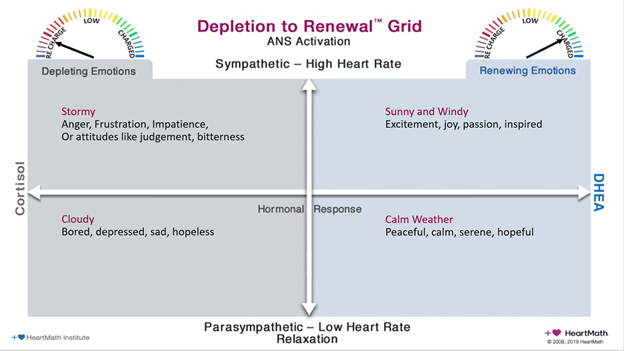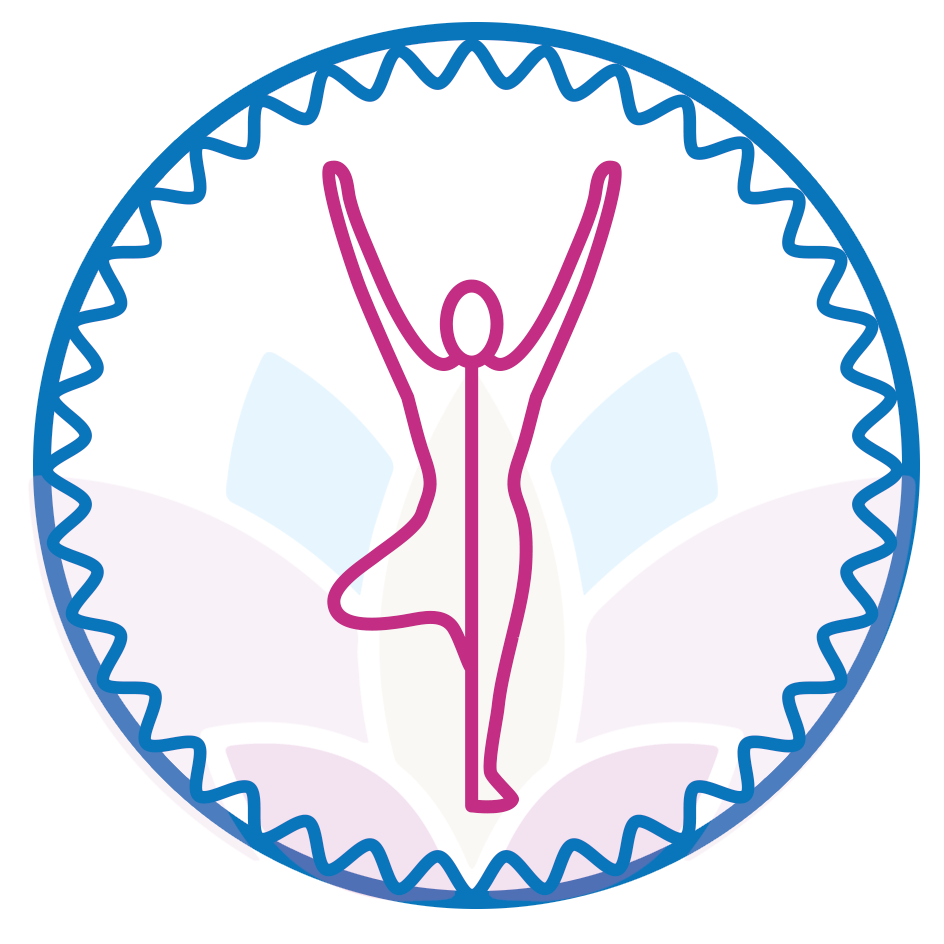
The differences between attitudes and emotions are subtle but important!
Emotions are quite fleeting. They come and go like the wind but have profound effects on our health. Emotions have been shown to release up to 1200 different chemicals in our bodies. Depleting or uncomfortable emotions, in particular, can create a cascade of hormones like cortisol being released which, in the short term, can create energy, but in the long term can have negative health effects. The nervous system is also affected by your emotional state. Continuous uncomfortable or depleting emotions can lead to nervous system dysregulation, which has been linked to sleep disruption and, possibly, addictive behaviors like overeating, consuming too much alcohol or coffee, smoking, binge shopping, watching too much TV, etc. These are some of the maladaptive ways our nervous system tries to re-regulate. There is no judgment here. We all do it. Awareness is the key to shifting emotions from depletion to renewal to start releasing happy hormones like oxytocin and the vitality hormone DHEA.

What exactly is the difference between emotions and attitudes?
Attitudes, like emotions, can have similar effects on your hormonal and nervous systems; however, they are a bit trickier to identify and change. According to the dictionary, attitudes are “a settled way of thinking or feeling about someone or something – typically one that is reflected in a person’s behavior.” Here are some examples of attitudes that may not be serving you well:
- Apathetic
- Callous
- Biased
- Aggressive
- Cynical
- Contemptuous
- Disgruntled
- Distrustful
- Glum
- Hostile
- Opinionated
- Pessimistic
- Passive
They might sound like “negative” emotions, but they are more deeply seated and often, more hidden from our own view or others’ views.

HeartMath® has a great tool for Cutting Thru Deep Seated Attitudes
Why is it important to become aware of your attitudes? Often, attitudes can be an underlying cause for feeling stuck and can create emotions such as frustration, anger, rage, or hatred. Attitudes develop over time and become so ingrained that they run the show from behind the scenes – often becoming the “emotional soundtracks” of our lives. From a yogic perspective, this is known as Samskaras—deeply grooved ruts in our physical and subtle bodies created from years of playing the same soundtrack over and over again.
Without awareness and deeper work to find out if these attitudes are serving our higher good, then they continue to affect our lives, our health, and our relationships from behind the scenes. Underlying attitudes can also be the cause of conflicts and relational difficulties because they are indistinguishable from our beliefs. We can change our attitudes if we want to. Try this HeartMath® practice to Cut Thru deep-seated attitudes based on past experiences that might be causing discomfort in your emotions and difficulty in solving issues. This technique practiced over time can release these and help you become your most vibrant, empowered, and loving self.
Join me this week for a Free HeartMath® WeAddHeart meditation session which will help you feel better and maybe start to switch deep-seated attitudes into some uplifting attitudes like motivated, pleasant, open, objective, patient, reasonable, realistic, responsive, sincere, strong, grounded, hopeful, friendly, flexible, giving. You can sign up for the meditation by clicking this link.
Namaste,
Andrea



